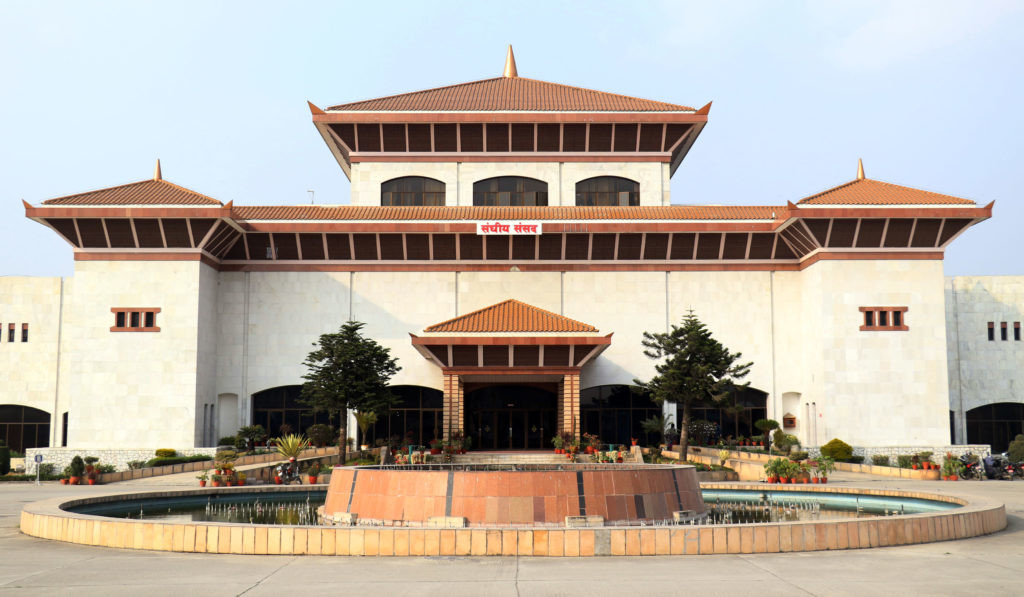Three bills passed; Lawmakers draw govt attention on contemporary issues

Kathmandu / August 11: Three different bills– Police Adjustment Bill-2076, Bill related to Work Execution, Supervision and Coordination of to Nepal Police and Provincial Police -2076 and Environment Protection Bill-2076 have been passed.
Today’s meeting of the House of Representatives passed the bills unanimously.
Minister for Home Affairs, Ram Bahadur Thapa, had tabled Police Adjustment Bill and Bill related to Work Execution, Supervision and Coordination of Nepal Police and Provincial Police-2076 while Minister for Forest and Environment, Shakti Basnet, tabled the Environment Protection Bill-2076 in the Parliament. The HoR will meet next on August 13.
Lawmakers draw govt attention on contemporary issues
“The ‘lived experiences’ of Dolpa and Humla people are different from what we have heard. When and where to raise the issues which we have been seen and experienced if not raised here right now?”
It was what lawmaker Chhakka Bahadur Lama saying in the meeting of the State Affairs Committee under the House of Representatives today, seeking to take the issues on national identity cards seriously and practically. During the discussions on a bill regarding making provisions for national identity cards and registration in the committee meeting, lawmaker Lama said, “Polyandry still exists in Humla and Dolpa.”
He sought the formulation of laws regarding a national card bearing in mind legal hurdles facing people there to acquire citizenship and national card. The existing Criminal Code of Nepal has criminalized the polygamous, but this culture remains as a customary practice among some communities in the mountainous districts.
The tradition existing as a result of the small-size population, the tradition of a joint family and the practice of preventing property split bring difficulties in the identification of a child in acquiring citizenship and in the death registration as well. These issues were discussed in the meeting. Lawmaker Bijaya Subba said how the law responds if a woman from a far-flung area of Humla or Dolpa where polyandry is still in practice comes for citizenship with identifying three men as her husbands, while the law has already criminalized the polygamy.
He said, “Indigenous communities like us have been facing action while exercising the rights bestowed on us by the constitution. Why should we be punished while using our constitution-enshrined rights?” Parliamentarians Yashoda Subedi, Rekha Sharma, Dila Shangraula said they could not agree to the argument that we should move ahead, protecting the practice banned by the constitution and laws.
Sharma asked, “Can we breach the constitution by showing the society, traditions, and behaviors? We should decide by looking at the laws and constitution rather than society.”
Jhapat Rawal said that there was no denying in the facts that we all should move ahead abiding by the law and constitution but how to resolve the issue if the locals had come to obtain citizenship identity cards and record marriage, birth and the like.
Pampha Bhusal said the triple talaq was recently criminalized in India and there was no point for us also in moving in observing superstitious and ill-traditions and norms. Maheshwar Jung Gahatraj spoke of the need to formulate laws that would end the ill-traditions. Devendra Raj Kandel suggested the formulation of laws that would address the complexity arising in a lack of harmony between the practical and legal aspects. RSS
